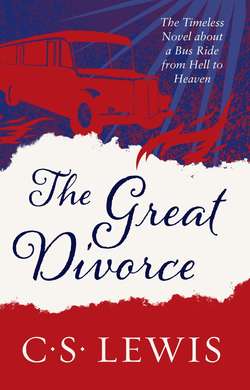Читать книгу The Great Divorce - Клайв Льюис, Клайв Стейплз Льюис, C. S. Lewis - Страница 6
Preface
ОглавлениеBlake wrote the Marriage of Heaven and Hell. If I have written of their Divorce, this is not because I think myself a fit antagonist for so great a genius, nor even because I feel at all sure that I know what he meant. But in some sense or other the attempt to make that marriage is perennial. The attempt is based on the belief that reality never presents us with an absolutely unavoidable ‘either-or’; that, granted skill and patience and (above all) time enough, some way of embracing both alternatives can always be found; that mere development or adjustment or refinement will somehow turn evil into good without our being called on for a final and total rejection of anything we should like to retain. This belief I take to be a disastrous error. You cannot take all luggage with you on all journeys; on one journey even your right hand and your right eye may be among the things you have to leave behind. We are not living in a world where all roads are radii of a circle and where all, if followed long enough, will therefore draw gradually nearer and finally meet at the centre: rather in a world where every road, after a few miles, forks into two, and each of those into two again, and at each fork you must make a decision. Even on the biological level life is not like a river but like a tree. It does not move towards unity but away from it and the creatures grow further apart as they increase in perfection. Good, as it ripens, becomes continually more different not only from evil but from other good.
I do not think that all who choose wrong roads perish; but their rescue consists in being put back on the right road. A sum can be put right: but only by going back till you find the error and working it afresh from that point, never by simply going on. Evil can be undone, but it cannot ‘develop’ into good. Time does not heal it. The spell must be unwound, bit by bit, ‘with backward mutters of diservring power’—or else not. It is still ‘either-or’. If we insist on keeping Hell (or even earth) we shall not see Heaven: if we accept Heaven we shall not be able to retain even the smallest and most intimate souvenirs of Hell. I believe, to be sure, that any man who reaches Heaven will find that what he abandoned (even in plucking out his right eye) has not been lost: that the kernel of what he was really seeking even in his most depraved wishes will be there, beyond expectation, waiting for him in ‘the High Countries’. In that sense it will be true for those who have completed the journey (and for no others) to say that good is everything and Heaven everywhere. But we, at this end of the road, must not try to anticipate that retrospective vision. If we do, we are likely to embrace the false and disastrous converse and fancy that everything is good and everywhere is Heaven.
But what, you ask, of earth? Earth, I think, will not be found by anyone to be in the end a very distinct place. I think earth, if chosen instead of Heaven, will turn out to have been, all along, only a region in Hell: and earth, if put second to Heaven, to have been from the beginning a part of Heaven itself.
There are only two things more to be said about this small book. Firstly, I must acknowledge my debt to a writer whose name I have forgotten and whom I read several years ago in a highly coloured American magazine of what they call ‘Scientifiction’. The unbendable and unbreakable quality of my heavenly matter was suggested to me by him, though he used the fancy for a different and most ingenious purpose. His hero travelled into the past: and there, very properly, found raindrops that would pierce him like bullets and sandwiches that no strength could bite—because, of course, nothing in the past can be altered. I, with less originality but (I hope) equal propriety; have transferred this to the eternal. If the writer of that story ever reads these lines I ask him to accept my grateful acknowledgement. The second thing is this. I beg readers to remember that this is a fantasy. It has of course—or I intended it to have—a moral. But the trans-mortal conditions are solely an imaginative supposal: they are not even a guess or a speculation at what may actually await us. The last thing I wish is to arouse factual curiosity about the details of the after-world.
C. S. LEWIS
April, 1945
